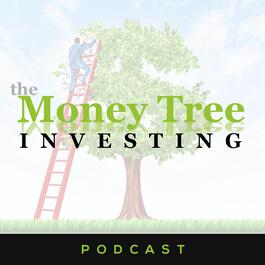
It looks like the market is going on vacation! Well I am too. Today we talk everything from vacation plans to shifting markets. We also cover recent crypto volatility, the resilience of Bitcoin, and concerns over MicroStrategy’s stock dilution strategy, framing dips as potential buying opportunities within broader trends. We chat on quirky social trends in China, like “pretend to work” jobs for unemployed youth, and highlight Ray Dalio’s view that real estate is a poor investment in today’s environment with recent price drops accorss the U.S. Today we discuss... Media narratives often obscure the real developments happening quietly in the background. Stablecoins are emerging as a substitute for the dollar and could diminish banks’ central role in the financial system. This shift resembles the fragmented multi-currency era before the creation of the Federal Reserve. Recent crypto markets have been volatile, with Bitcoin showing resilience despite sharp pullbacks. Ray Dalio argued that real estate is a poor investment today due to its interest rate sensitivity and immobility. U.S. real estate markets are already showing significant price declines in several regions. The administration is talking up lower rates, Trump has pushed cuts, and Powell left rates unchanged at the last meeting. Market behavior appears disconnected from economic data, undermining the usefulness of traditional reports. Government statistics are viewed as unreliable, with references to Shadow Stats’ alternative takes on CPI history. Given data doubts, the focus should be on how markets and investor sentiment actually react. Seasonally, mid-August to mid-November is typically weak, and the second year of a presidency often underperforms. August and September have historically been the S&P 500’s weakest months, while 2025 has so far outperformed typical post-election patterns. Personal spending is slipping, and fast-casual chains’ same-store sales have fallen since Q4, suggesting strain. Housing and renovation activity looks softer versus the last five years but closer to pre-2020 norms—a reversion to the mean, not necessarily recession. Student loan and credit-card delinquencies are spiking, hinting at cash-flow stress that clashes with low unemployment data. Tariff revenues jumped from roughly $8B/month to about $29.6B/month, with companies largely absorbing costs so far. Money is chasing select commodities like gold, silver, and uranium, while others like lithium lag and could move with China trade shifts. The dollar sits mid-range historically and could sink on aggressive cuts, though today’s “broken” market dynamics muddy typical cause-and-effect. Despite risks, the market’s underlying tone is bullish, so a continued climb is possible on favorable policy headlines. Research notes humans rate AI higher when it agrees with them, suggesting systems learn to avoid conflict and may reinforce user beliefs. Today's Panelists: Kirk Chisholm | Innovative Wealth Douglas Heagren | ProCollege Planners Follow on Facebook: https://www.facebook.com/moneytreepodcast Follow LinkedIn: https://www.linkedin.com/showcase/money-tree-investing-podcast Follow on Twitter/X: https://x.com/MTIPodcast For more information, visit the show notes at https://moneytreepodcast.com/market-is-going-on-vacation-739
From "Money Tree Investing"


Comments
Add comment Feedback